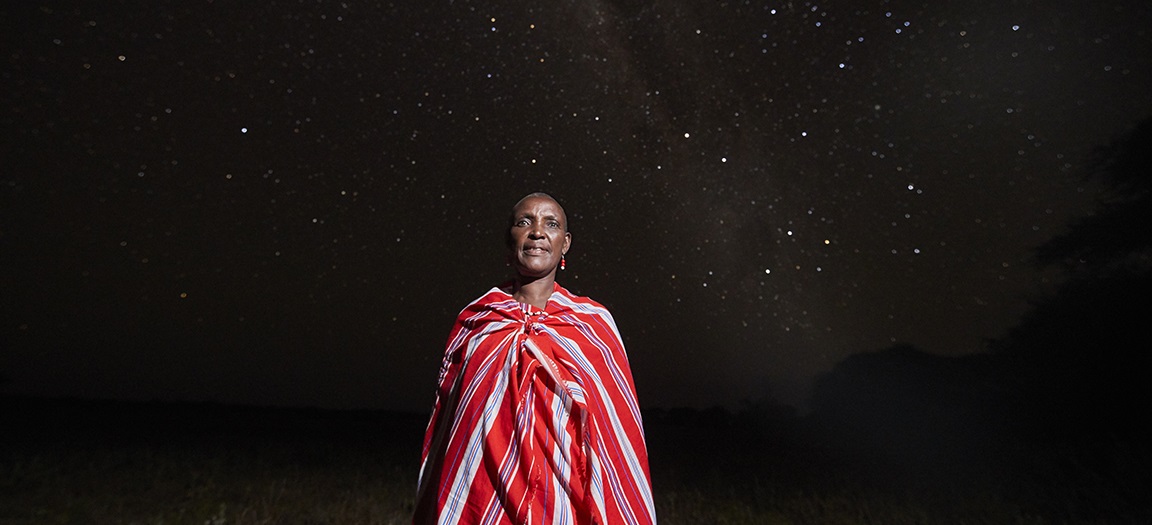
Dining for Women’s Impact: Mama Helena’s Story
A Voice for Change
Beekeeping Empowers a Rural Woman to Transcend her Traditional Roles
The African People & Wildlife Fund (APW) builds the capacity of rural Africans in northern Tanzania’s Maasai community to engage in conservation and sustainable livelihood strategies that promote the dual objectives of biodiversity conservation and poverty alleviation. Dining for Women (DFW) awarded APW a Featured Grant of $47,500 in May 2016 to fund the Women’s Entrepreneurship and Empowerment Initiative. This project empowers women to protect their natural resources for themselves and for future generations through entrepreneurship and environmentally-friendly small business development such as bee-keeping. DFW recently selected APW to receive a Sustained Grant in 2019.
On a cool summer morning in the community of Loibor Siret, 54-year-old Mama Helena Mbarnoti celebrates beneath the shade of a large baobab tree. She and other members of Maa — a 15-woman group—have just finished hanging five new beehives. Once they harvest and sell the honey, the women will use the profits to help improve their lives.
As lifelong residents of the community, Mama Helena and the Maa women’s group started their own beekeeping business four years ago with the support of APW’s Women’s Beekeeping Initiative. Since then, DFW funds have helped the women of Maa to continue building their capacity in beekeeping and honey sales.
“I was attracted to the idea of beekeeping because it was a way for me to earn some money without having to make a big time investment,” says Mama Helena.
As a Maasai woman, Mama Helena is responsible for maintaining her home, collecting firewood and water, milking the family’s cattle, cooking, and raising her children. Before this opportunity came along, it was a challenge for her to find ways to earn her own income.
“Most of the women here don’t have a voice in the decisions taking place at home because they are financially dependent on their husbands,” she explains. “But if a woman has her own money, she can take care of things in the family that are important to her.”
In Mama Helena’s case, this has included paying for her 12-year-old daughter’s school fees, uniforms, and books.
“Many men in the community don’t see the value in sending their daughters to school,” she says. “But the women understand the importance of this. So if we have our own source of income, we can make sure that our daughters get an education.”
Her newfound financial independence has led to other important changes in Mama Helena’s life.
“My husband asks for my opinion on things now, and I am respected more in the community. The same thing is happening with other women who are involved with beekeeping. Men in the village are starting to see that we have a purpose beyond our traditional household roles.”
Over the past few years, Mama Helena has also noticed a shift in the community’s understanding of environmental issues like climate change and the importance of trees. Until recently, many people in Loibor Siret were not aware that their actions could make a difference.
“Before we started our businesses, our women’s group received training from APW. In addition to gaining entrepreneurial skills, we learned about the environment and all the ways that beekeeping protects the trees and the land. Now, this knowledge is spreading through the community. The men are responding very positively to this project because they depend on a good environment for the health of their livestock,” she says.
The Maa women’s group is just one of 77 in northern Tanzania taking part in the Women’s Beekeeping Initiative. More than 1,190 women are running and expanding their own beekeeping businesses while receiving ongoing training and support. APW plans to double the number of participating women over the next few years.
Photo credit: African People & Wildlife/ Felipe Rodriguez
